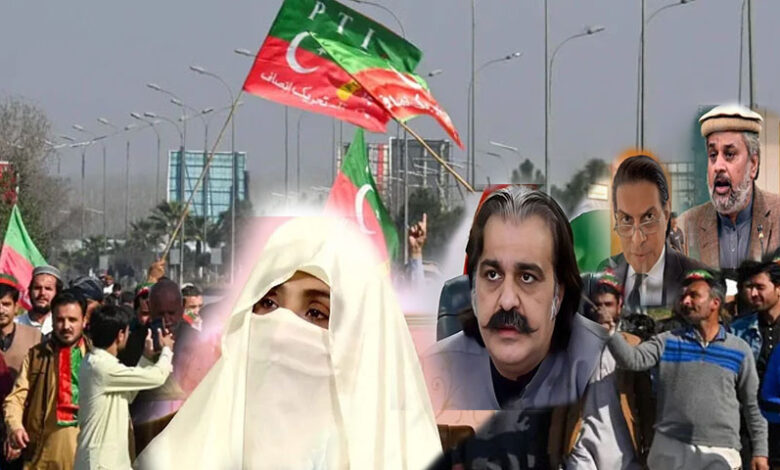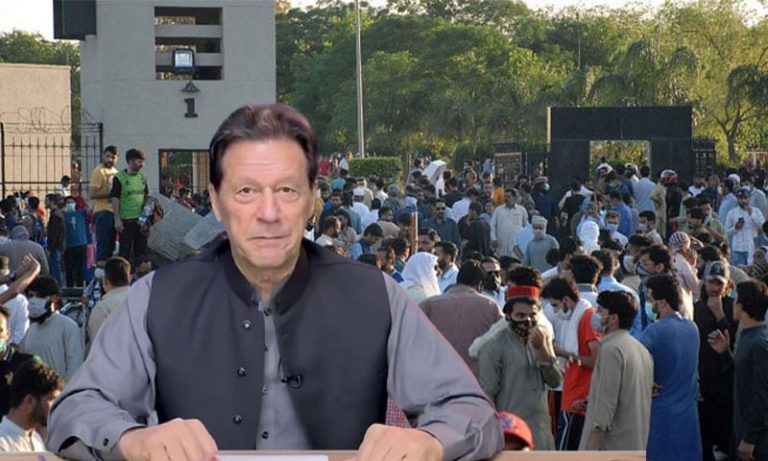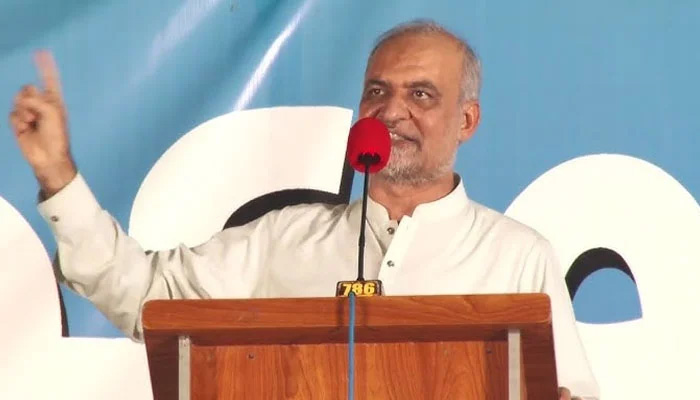PTI Core and Political Committees Debate Bushra Bibi’s Role in Decision-Making and Accountability for Protest Violence

Islamabad:The Pakistan Tehreek-e-Insaf (PTI) core committee and its political committee have held discussions regarding the role of Bushra Bibi in party decision-making, with particular focus on the violent protests that took place during the party’s recent ‘final call’ for a demonstration. The committees raised questions about who violated the directive to hold a sit-in in Sangjani and who was responsible for sending party workers to the deadly protest at D-Chowk in Islamabad.
According to media reports, the separate meetings of the PTI’s core and political committees took place on Tuesday. Both forums discussed Bushra Bibi’s involvement in the protest march and other political activities. The committees condemned the alleged killing of PTI protesters by the government forces and called for a judicial commission to investigate the deaths.
**Internal Investigation and Accountability**
During the discussions, concerns were raised about the conflicting reports regarding the number of PTI workers who lost their lives during the protests. Many of these reports were deemed unreliable. In addition to criticizing the government’s actions, the committees urged the party to conduct an internal investigation into who was responsible for the decision to march towards D-Chowk and the subsequent violence.
A key point of contention was why the directive given by PTI chairman Imran Khan to hold the protest in Sangjani was disregarded, leading to the escalation towards D-Chowk, which resulted in casualties. The committees emphasized the importance of political leadership taking full responsibility for such decisions, rather than leaving key choices in the hands of non-political figures.
**Bushra Bibi’s Role Questioned**
Bushra Bibi’s involvement in the protests was scrutinized, although no committee member defended her actions. Instead, there was a consensus that the political leadership should have been responsible for the decisions. The committees noted that had the original plan for a sit-in in Sangjani been followed, the deaths of PTI workers might have been prevented and formal negotiations between the government and PTI could have been initiated.
Interestingly, several senior party leaders expressed concerns about the timing of the November 24 protest and had even discussed the possibility of canceling the march after the Islamabad High Court’s decision.
**S resignation of Key Leaders**
Meanwhile, in the aftermath of PTI’s unsuccessful ‘final call’ protest, two prominent party members, Salman Akram Raja and Sahibzada Hamid Raza, have resigned from their positions in the core and political committees of the party.
On Thursday, Sahibzada Hamid Raza, a member of the National Assembly, and Salman Akram Raja, PTI’s General Secretary, both submitted their resignations. Sources indicate that Hamid Raza plans to resign from his National Assembly seat as well after meeting with PTI leadership.
According to PTI sources, Salman Akram Raja’s resignation was due to personal reasons, and he has submitted his resignation to the party leadership. The resignation was confirmed by PTI Chairman Barrister Gohar Khan. It is worth noting that Salman Akram Raja was appointed as PTI’s General Secretary in September by party founder Imran Khan.
**Criticism and Response**
Salman Akram Raja faced sharp criticism for his lack of active involvement in PTI’s recent protests. In response to this criticism, he released a video statement, explaining the challenges faced by PTI leaders in Lahore during the protests. He highlighted that all roads to Lahore were blocked, and where a gathering of just ten people occurred, police used batons to disperse them. He stated that it was almost impossible to leave Lahore on November 24, as the entire city had been turned into a “prison” by the authorities.
As PTI moves forward, these internal discussions, resignations, and criticisms signal a period of reflection and potential reshuffling within the party’s leadership, particularly as the political landscape remains tense and uncertain.






